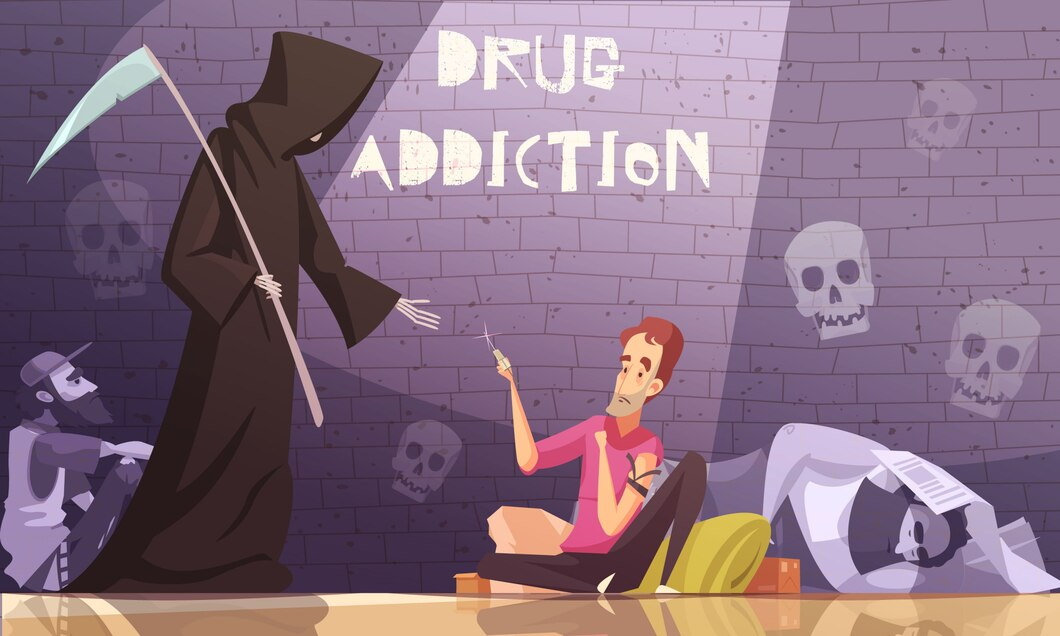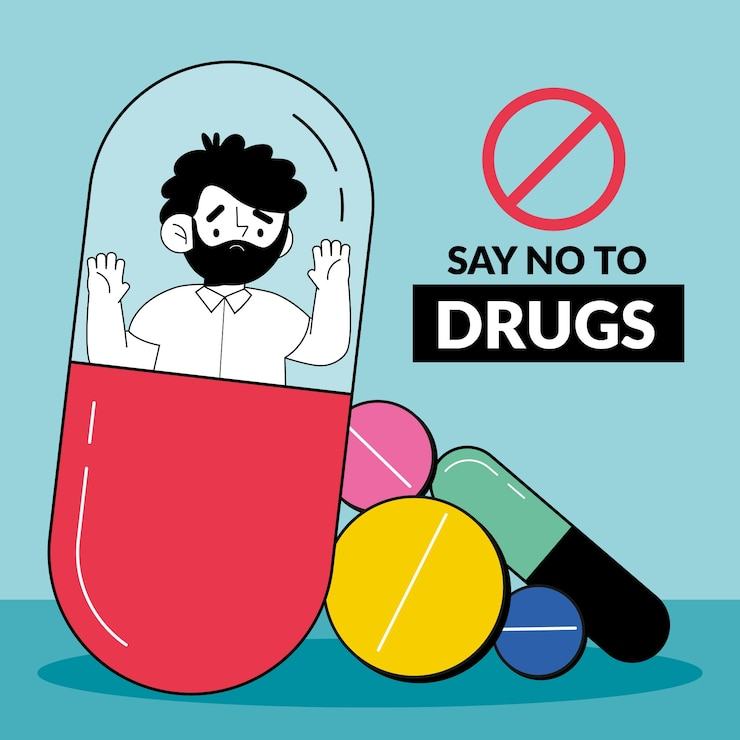The Devastating Impact Of Drug Abuse And Addiction On Life And Health
Drug abuse and addiction are severe social issues that have devastated lives all over the world. These conditions afflict people of all races, classes, and ages, wreaking havoc on their physical, mental, and emotional well-being.
Table of Contents
Although numerous substances can be abused, some of the most common include opioids, alcohol, marijuana, and tobacco. Addiction is a chronic disorder that has the potential to ruin relationships, sabotage careers, and severely impair health. However, with treatment and support, recovery is possible.
What is Drug Abuse?
Drug abuse is the misuse of a substance, either legal or illegal, in a way that causes harm to oneself or others. It can involve taking a larger-than-recommended dose of a prescription medication, using a substance in a way that is not intended, or taking a substance to get high.
Drug abuse can lead to a number of negative consequences, including:
- Addiction
- Health problems
- Accidents
- Legal problems
- Social problems
What is Drug Addiction?
Drug addiction is a chronic disease that affects the brain and behavior. People with addiction are unable to control their use of a substance, despite the negative consequences it has on their lives.
They may continue to use the substance even when it causes them serious health problems, financial difficulties, or legal problems. Addiction is characterized by the following:
- Intense cravings for the substance
- Continued use despite negative consequences
- Loss of control over substance use
- Physical dependence on the substance
Factors that Contribute to Drug Abuse and Addiction
A number of factors can contribute to drug abuse and addiction, including:
- Genetics: People with a family history of addiction are more likely to develop an addiction themselves.
- Mental health: People with mental health disorders, such as depression or anxiety, are more likely to abuse drugs as a way to self-medicate.
- Trauma: People who have experienced trauma, such as abuse or neglect, are more likely to abuse drugs as a way to cope.
- Social environment: People who are surrounded by drug users are more likely to use drugs themselves.
- Peer pressure: Young people may be pressured to use drugs by their friends or peers.
Signs and Symptoms of Drug Abuse and Addiction
The signs and symptoms of drug abuse and addiction can vary depending on the substance being abused. However, some common signs and symptoms include:
- Changes in mood or behavior
- Increased tolerance to the substance
- Withdrawal symptoms when the substance is not used
- Neglecting responsibilities
- Financial problems
- Legal problems
- Health problems
Drug abuse and addiction can have a devastating impact on a person’s life and health. It can lead to a number of serious problems, including:
- Health problems: Drug abuse and addiction can cause a wide range of health problems, including heart disease, stroke, cancer, liver damage, and lung disease. It can also weaken the immune system, making people more susceptible to infection.
- Mental health problems: Drug abuse and addiction can also lead to mental health problems, such as depression, anxiety, and psychosis. It can also worsen existing mental health conditions.
- Social problems: Drug abuse and addiction can lead to social problems, such as relationship problems, job loss, and financial problems. It can also lead to criminal activity.
- Death: Drugs abuse and addiction is a major cause of preventable death. Opioid overdose is a leading cause of death in the United States, and drug abuse and addiction can also contribute to death from other causes, such as accidents, suicide, and homicide.
The impact of drug abuse and addiction on life and health can be profound and far-reaching.
It can affect every aspect of a person’s life, from their physical and mental health to their relationships, careers, and finances. In some cases, it can even lead to death.
If you or someone you know is struggling with drug abuse or addiction, there is help available.
There are many different treatment options available, and recovery is possible. Please don’t hesitate to reach out for help.
Treatment for Drug Abuse and Addiction
Treatment for drugs abuse and addiction is complex and requires a comprehensive approach. The most effective treatments typically involve a combination of therapy, medication, and support services.
Therapy:
Therapy can help people with addiction to understand the root causes of their addiction and develop healthy coping mechanisms.
There are a number of different types of therapy that can be effective for drugs abuse and addiction, including cognitive-behavioral therapy (CBT), motivational interviewing, and contingency management.
Medication:
Medication can be used to help people with addiction manage their cravings and withdrawal symptoms.
There are a number of different medications that can be used to treat drugs abuse and addiction, including methadone, naltrexone, and buprenorphine.
Support services:
Support services can provide people with addiction with the resources and support they need to recover.
These services may include support groups, 12-step programs, and vocational rehabilitation.
Recovery from Drug Abuse and Addiction
Recovery from drugs abuse and addiction is a lifelong process. However, with treatment and support, it is possible to achieve and maintain sobriety.
If you or someone you know is struggling with drug abuse or addiction, please seek help. There are many resources available to help people recover and get their lives back on track.
Conclusion
Drugs abuse and addiction are serious problems, but they are treatable. If you or someone you know is struggling with addiction, please seek help. There is hope for recovery.
References
- National Institute on Drug Abuse (NIDA)
- HelpGuide.org
- Substance Abuse and Mental Health Services Administration (SAMHSA)

